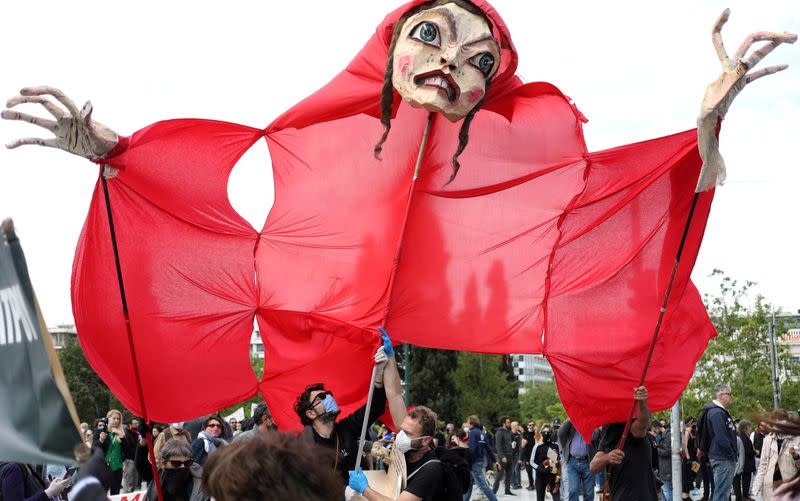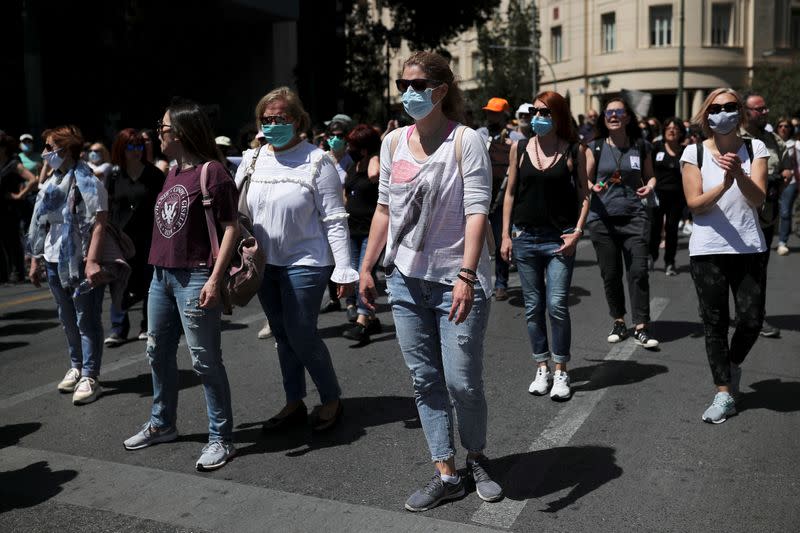Greek government seeks curbs on right to protest, unions push back
ATHENS (Reuters) - Public sector workers walked off their jobs on Wednesday in defence of Greeks' right to protest, as lawmakers began debating a government bill to place restrictions on the country's frequent street demonstrations.
During Greece's long debt crisis, which began in late 2009 and led to three international bailouts, Syntagma Square outside parliament became the scene of massive anti-austerity protests.
Demonstrations have continued during the subsequent economic recovery but turnout has fallen, and the government argues that they disrupt traffic and business activity.
Parliament, where the government holds a majority, is expected to vote on the draft legislation on Thursday.
It mandates the appointment of a liaison officer, restrictions on demonstrations or outright bans if authorities deem they threatens public safety. It also holds organisers responsible for any harm or damage caused by protesters.
Civil Protection Minister Michalis Chrysohoidis told lawmakers that there were nearly two protests a day in May and June, and that most Greeks wanted them regulated.
But the issue is a sensitive one in a country where the right to protest is enshrined in the constitution, and where many believe abuse of power by the political elite was largely responsible for the debt crisis. Older citizens recall the excesses of the military junta that ruled from 1967-1974.
The bill is intended to replace a 1971 junta decree restricting rallies.
The largest public sector union, ADEDY, staged a work stoppage on Wednesday and more protests are planned for Thursday.
"We'll do everything possible to make sure it won't pass," said ADEDY member Odysseas Ntrivalas.
(Reporting by Renee Maltezou; editing by John Stonestreet)



